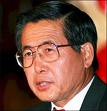Some Different Thoughts on the Iowa Supreme Court Marriage Decision
I wanted to respond to Mr. Samis’s thoughtful post on the Iowa marriage case and thought it’d be easier to do so by a separate post than by a comment. It is hard to engage such a complicated and emotionally charged question within the confines of a blog. Although I have generally found both my allies and opponents on the question to be gracious and respectful, I am also aware that this is an issue that can degenerate into dueling allegations of bad faith — of, from one side, accusations of “hate” and “prejudice” and, from the other, charges of “licentiousness” and “irreligion.” I also know that to raise the conservative position in the academy is like launching an offensive deep behind enemy lines. You may soon find yourself surrounded.
But I am finishing (with Daniel Suhr ’08) a paper on interpretation of marriage amendments using Wisconsin as a case study, so the topic is much on my mind.
First, a disclosure. I was a public proponent of Wisconsin’s marriage amendment and based my case on wholly secular grounds without reference to the morality of same-sex relationships. While I appreciate that my church believes such relationships to be morally impermissible, I am not persuaded by that judgment.
Nor do I disagree with Mr. Samis that gay and lesbian relationships, just as heterosexual unions, may — hopefully, will — exhibit the loving and supportive characteristics that he observed between his friends. I have observed the same in my own circles.
But where proponents and opponents of genderless marriage part ways is on the question of whether this resolves the matter. The latter focus not on merely on what may be similar about same-sex and opposite-sex intimacy, but also on what is distinctive.

